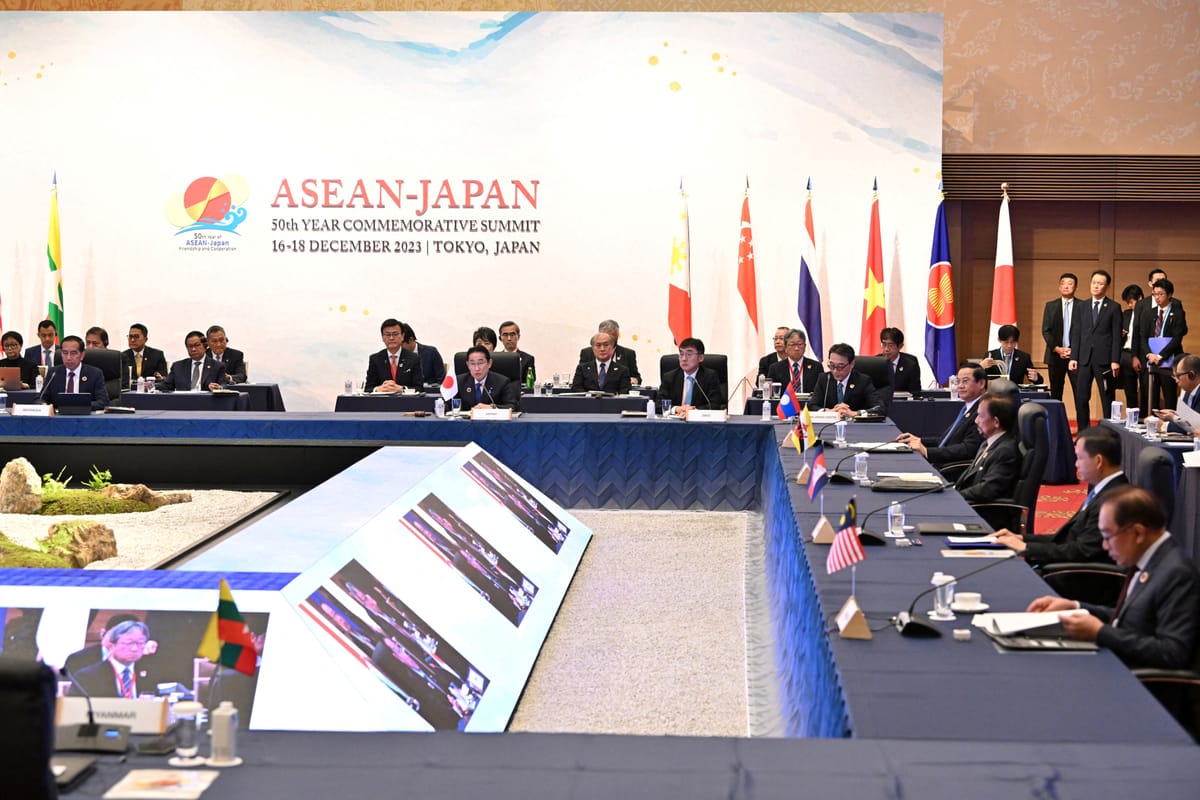Japan and ASEAN celebrate 50 years of ties
Japan hosted a summit with ASEAN leaders in Tokyo over the weekend, where they cooperated on a few major issues.

A few minutes every morning is all you need.
Stay up to date on the world's Headlines and Human Stories. It's fun, it's factual, it's fluff-free.
The backstory: The Association of Southeast Asian Nations (ASEAN) bloc is made up of 10 member states – Brunei, Myanmar, Cambodia, Indonesia, Laos, Malaysia, Philippines, Singapore, Thailand and Vietnam. This bloc is building ties with other countries in Southeast Asia and beyond. One major relationship ASEAN has been building is with Japan, which has strong Western ties. Japan didn’t always have a great relationship with many of the ASEAN countries, though, mostly due to its role in WWII. It invaded Myanmar (called Burma at the time), the Philippines, Singapore and Thailand in the 1940s. But since 1973, Japan and ASEAN have been on good terms, starting with trade talks over Japanese synthetic rubber. Over the past few decades, Japan has been investing in ASEAN economies, helping the developing markets in the bloc grow, and allowing their relationship to become friendlier with time.
More recently: ASEAN and Japan have a common interest when it comes to ongoing South China Sea territorial disputes. Tensions have been growing in this area as China claims territory over most of the waterway. Over the past few months, there have been confrontations in the sea, with the most recent happening between China and the Philippines. With this issue becoming more and more pressing, ASEAN’s relationship with Japan has become more focused on regional security.
The development: Japan hosted a summit with ASEAN leaders in Tokyo over the weekend, where they cooperated on a few major issues. This summit marked 50 years of ties between Japan and ASEAN. By the end of the conference, they agreed on more cooperation on maritime security, stronger supply chains, stepping up sustainable energy and better communication. The focus areas for economic and trade ties seem to be cars, tech and green energy. On a more specific level, Japan and Indonesia agreed to freer trade between the two of them. Japan has also agreed to help some of the ASEAN countries (like Indonesia and the Philippines) buy coast guard vessels for more security in the South China Sea. Even with all this talk about maritime peace and security, there was no mention of China specifically.
Key comments:
“We affirm the shared view to promote a rules-based Indo-Pacific region that is free and open (and) embraces key principles such as ASEAN’s unity and centrality, inclusiveness (and) transparency,” said the summit’s joint statement.
“We hope that relevant countries can truly do things conducive to regional peace and stability. At the same time, any cooperation should not target third parties,” China’s foreign ministry spokeswoman Mao Ning said about the conference.




Comments ()